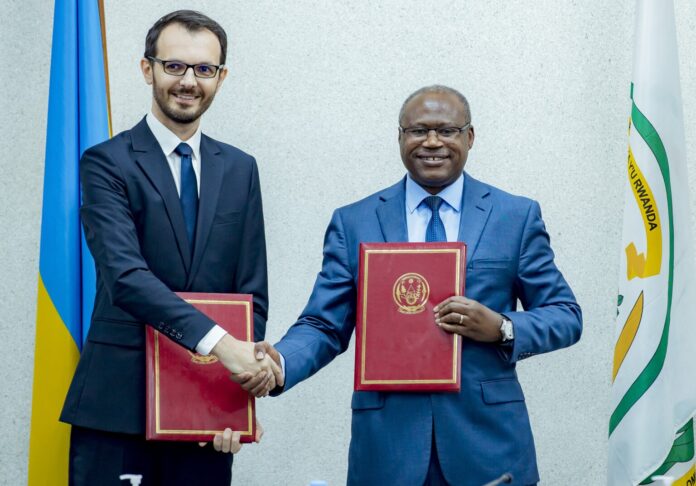
Rwanda and Bank Gospodarstwa Krajowego (BGK), a Polish development bank, have signed a financing agreement worth €23 million to will see the East African nation go a long way in boosting its dairy sector. The deal marks the first sovereign financing provided by a Polish Bank.
The long-term loan will be used to purchase a milk cooling system from a Polish manufacturer, Faspol, after the export contract for the delivery of milk cooling installation with additional equipment and construction components is concluded between the Faspol and Rwanda Agriculture Board.
The delivery of nearly 400 installations to local milk collection points is intended to reduce milk losses due to improper storage and increase production capabilities, and access to dairy products.
With the implementation of this project, it could play a key role in the socio-economic development of the country, especially in a sector that has largely remained without value-addition of the produce.
Uzziel Ndagijimana, Minister of Finance and Economic Planning, said the agreement of the credit financing holds a 12-year maturity with a grace period during the first three years.
“The agreement we are signing today is a testimony of the fast-growing bilateral cooperation between Rwanda and Poland. The two parties are exploring more opportunities for economic cooperation.”
Marek Tomczuk, member of the management board, BGK, commended the quick turnaround in the negotiation process of this agreement, noting that Rwanda is the first African country to tap into the bank’s financing facility.
Besides the agriculture sector, he said the sovereign bank will continue to partner with both the public and private sectors in Rwanda. At the same time, it has already identified many sectors where Polish businesses might be involved such as infrastructure, IT, mining, food processing, education, and defence.
“This agreement will open a new chapter in cooperation between our countries and it should also be a trigger for other Polish companies to start doing business here.”
Transforming livelihoods
The development will transform livelihoods, especially those involved in the livestock, in terms of accessing better markets at better prices in a more organised and safe way for their products, said Eric Rwigamba, State Minister for Agriculture and Animal Resources.
In December 2022, Rwanda vowed to increase milk production by 34 per cent in one way, Rwigamba said there has been minimal progress in achieving the target due to different factors that are currently being addressed.
Meanwhile, Inyange Industries Ltd, Rwanda’s largest agro-processing firm, had previously announced the setting up of a milk powder factory with an estimated $45 million (approx. Rwf55.6 billion) investment. The production was supposed to start in May 2023.
The plant is expected to have the capacity to process 500,000 litres of milk in liquid form into 50,000 kilogrammes (50 tonnes) of milk powder a day — because 10 litres of liquid milk will be producing one kilogramme of milk powder. With that, its annual capacity will be around 15,000 tonnes of milk powder.








[…] Credit: Source link […]
Comments are closed.